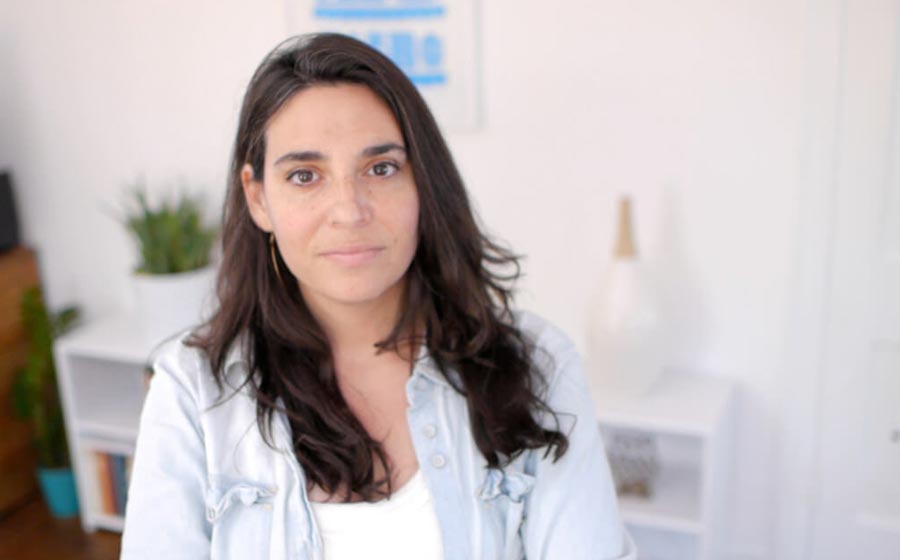
Deb has created the documentary film Southwest of Salem: The Story of the San Antonio Four. In 1997 and 1998 four young, Latina lesbians from San Antonio, Texas were wrongfully convicted and sentenced to prison. All were alleged to have gang-raped two girls. An investigator speculated they were involved in “Satanic-related sexual abuse,” and their sexuality was used against them during the trial. They have been released from prison. This project documents their story.
Deborah S. Esquenazi is a Texas-based documentary film and radio producer, instructor, and video artist committed to using media to reveal social inequities, rally support for important causes, and create probing, powerful documentary work.
Southwest of Salem has received international attention for its investigation into this controversial criminal case, and been mentioned in Forbes Magazine, New York Times, Texas Observer, among others. This film was supported by the Sundance Institute for Documentary Film Program, John D. and Catherine T. MacArthur Foundation Initiative, Alice Kleberg Reynolds Foundation, and Chicken & Egg Pictures.
Deb is also curating a retrospective exhibition on the multi-media of Bruce Jackson, the renowned folklorist, photographer and filmmaker who photographed the bygone era of slave plantation turned prison farm circa 1960’s. She is also collaborating with the renowned Fusebox Festival ThinkEAST project, supported by Artplace America, on an experimental series of teen-led short films that explore issues of Latino identity, criminality, and cultural equity.
Annalise Ophelian is an award-winning filmmaker and the producer/director of the documentary about Miss Major Griffin-Gracy, MAJOR!.
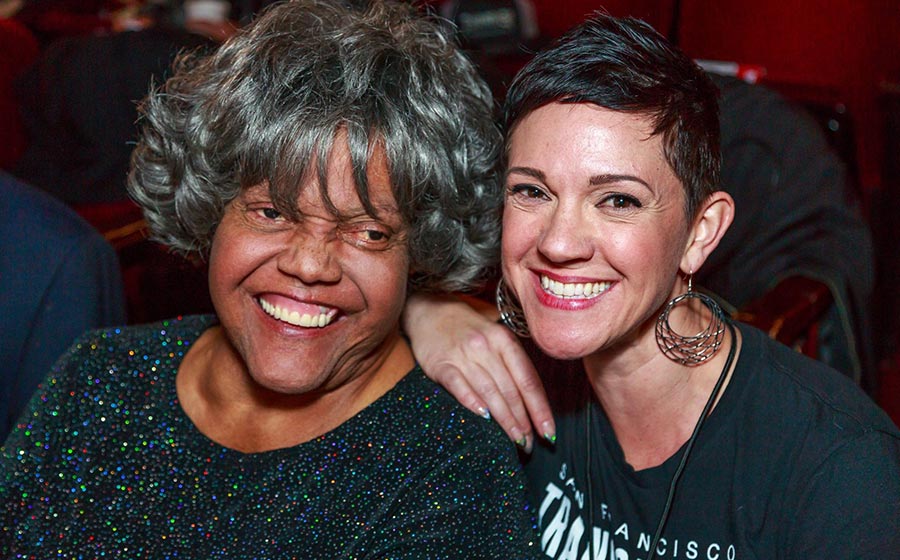
Annalise Ophelian is an award-winning filmmaker and the producer/director of the documentary about Miss Major Griffin-Gracy, MAJOR!. She is a white, queer-identified cis woman, psychologist, and consultant whose work includes Diagnosing Difference (2009). StormMiguel Florez is the co-producer/editor of MAJOR! and is a Xicano transgender musician and filmmaker. He is a graduate of the Queer Women of Color Media Arts Project and on the leadership team of the Transgender GenderVariant Intersex Justice Project.
Watch an interview with Annalise Ophelian and Miss Major, the subject of Ophelian’s documentary:
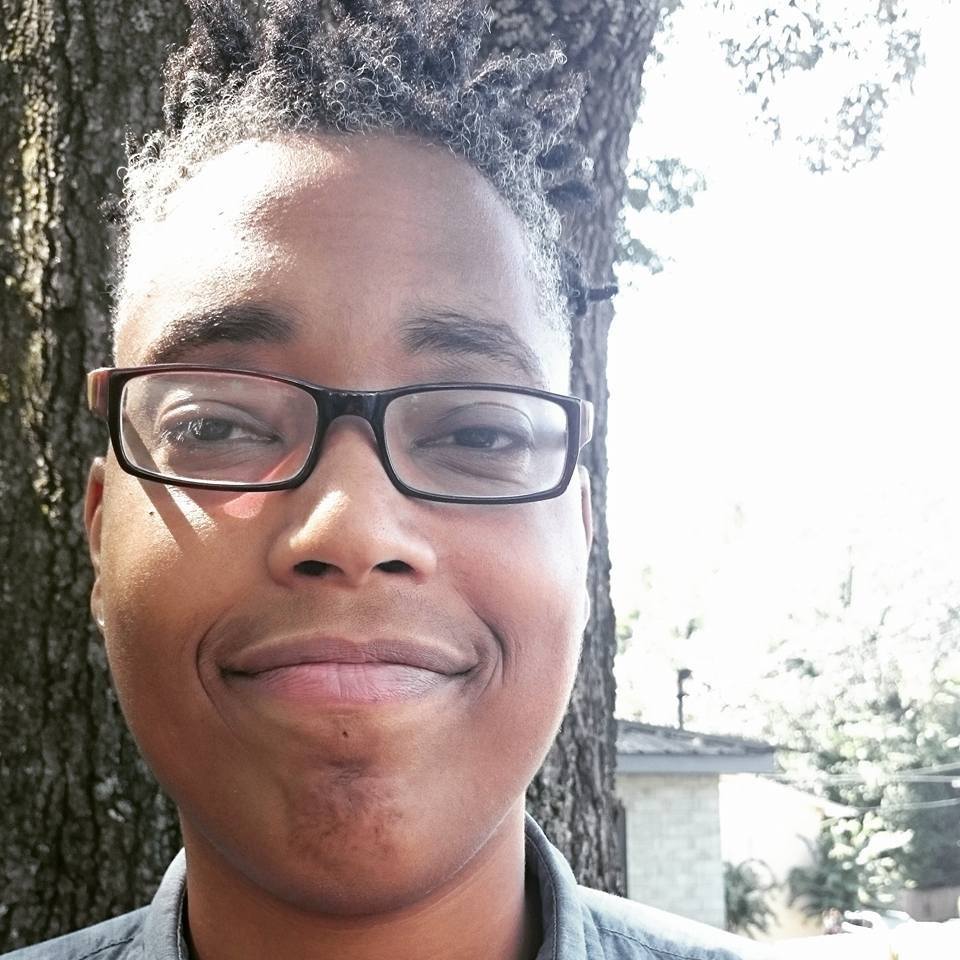
EMERGE is a project that creates social impact through visual artistry. EMERGE is the culmination of Sean Saifa Wall’s achievements to date that reflect his documentation of community and history through art. EMERGE is also the parent project for a series of socially motivated projects that will raise awareness of inequity and juxtapose that with resilience.
The funded project, Letters to an Unborn Son (LUS), is a multi-media performance focusing on Saifa and his father, who was incarcerated for four years and died while in prison from AIDS-related complications. LUS draws from letters that he sent during that time to his wife and Saifa, who was assigned female at birth and later transitioned to male. LUS intends to educate people about the experiences of those born with intersex bodies and discuss intersectional issues related to institutional racism, incarceration, poverty, state violence against non-normative bodies, and addiction. Funding will enable EMERGE to develop and stage a performance in Atlanta, as well as start work on the video component of the project.
Check out our 2016 Intersex Awareness Day video, featuring Sean Saifa Wall:
El encuentro feminista “Lesbitransinter” de Latinoamérica y el Caribe se llevó a cabo en San José, Costa Rica del 22 al 24 de julio, 2015.
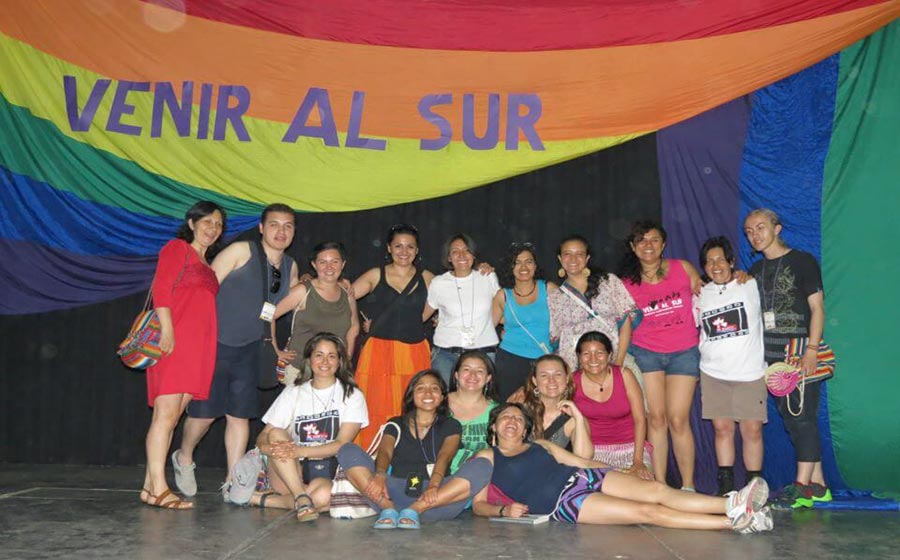
El encuentro feminista “Lesbitransinter” de Latinoamérica y el Caribe se llevó a cabo en San José, Costa Rica del 22 al 24 de julio, 2015. Las metas de la serie de encuentros continuos son crear un espacio abierto para promover el diálogo, la reflexión y el debate entre diversas partes del movimiento; reflexionar sobre los avances y los fallos del movimiento feminista; y promover colaboraciones políticas regionales que influyan al movimiento en años venideros. El arte como herramienta de transformación social fue un eje central de este más reciente encuentro, junto con el placer y el disfrute–como derechos básicos y como estrategias.
***
El encuentro feminista “Lesbitransinter” de Latinoamérica y el Caribe se llevó a cabo en San José, Costa Rica del 22 al 24 de julio, 2015. Las metas de la serie de encuentros continuos son crear un espacio abierto para promover el diálogo, la reflexión y el debate entre diversas partes del movimiento; reflexionar sobre los avances y los fallos del movimiento feminista; y promover colaboraciones políticas regionales que influyan al movimiento en años venideros. El arte como herramienta de transformación social fue un eje central de este más reciente encuentro, junto con el placer y el disfrute–como derechos básicos y como estrategias.
Krudas’ repertoire includes Hip Hop Cubensi, Dancehall, old-school rhythms and new rhythms of the entire world.
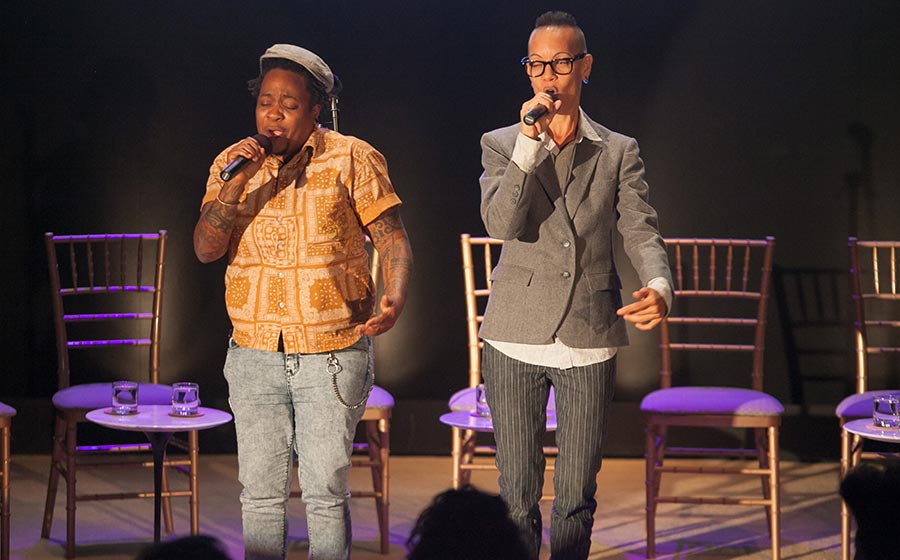
Odaymara Cuesta and Olivia Prendes were born and raised in Cuba, artivistas, rappers and hip-hop artists, independent musicians, poets, theaters and designers representing women, immigrants and non-white queer people of color as a central part of global change. Formed in Havana in 1999 as a trio, Krudas has become a duo since 2004 and has brought their raw point of view to the world. In 2006 they migrated to Austin, Texas in the United States and have been acclaimed internationally for their representations, recordings, speeches and tours in Europe, North America, Central America, South America and the Caribbean to this day. Krudas’ repertoire includes Hip Hop Cubensi, Dancehall, old-school rhythms and new rhythms of the entire world intertwined with their extraordinary and rebellious hard feminist and Afro-Cuban lyrics and their indomitable voices, sounds, dances and energies to empower communities. They are internationally recognized and have been presented throughout Latin America and the United States. In Cuba, raw (kruda) means uncooked, unprocessed, unrefined, natural, real. Cubensi is a word related to native species of Caribbean areas. Krudas Cubensi: Krudas of the Caribbean.
*** En Español***
Odaymara Cuesta y Olivia Prendes son nacidas y criadas en Cuba, artivistas, raperas y hiphoperas, músicos independientes, poetas, teatreras y diseñadoras en representación de mujeres, inmigrantes y personas queer no blancas (o de color, como se dice comúnmente en Estados Unidos) como parte central del cambio mundial. Formadas en la Habana en 1999 como un trío, Krudas se ha convertido en un dúo desde 2004 y le ha traído su punto de vista crudo al mundo. En 2006 migraron a Austin, Texas en Estados Unidos y han sido aclamadas internacionalmente por sus representaciones, grabaciones, discursos y giras en Norteamérica, Centroamérica, Suramérica y el Caribe hasta el día de hoy. El repertorio de las Krudas incluye Hip Hop Cubensi, Dancehall, ritmos viejos y nuevos del mundo entero entrelazados con sus extraordinarias y rebeldes líricas duras feministas y afrocubanas y sus indomables voces, sonidos, bailes y energías para empoderar comunidades. Son reconocidas internacionalmente y se han presentado por toda Latinoamérica y Estados Unidos. En Cuba, cruda (kruda) significa no cocida, no procesada, no refinada, natural, real. Cubensi es una palabra relacionada con especies nativas de áreas caribeñas. Krudas Cubensi: las crudas del Caribe.
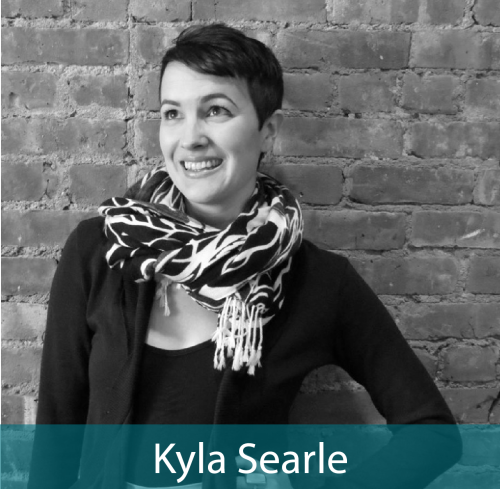
Kyla Searle is an artist, producer and activist. Kyla seeks out inquiry and intersection, inspired by the creativity of the community that raised her in Berkeley and Oakland, California. Her work and practice have been developed through the Institute for Theatre in the Jazz Aesthetic, the Hemispheric EmergeNYC Program, the Institute for Arts and Civic Dialogue, and the Yerba Buena Center for the Arts. She lives in New York City.

Milumbe Haimbe was born in Lusaka, Zambia. She has a Bachelor’s Degree in Architecture attained from the Copperbelt University, and also holds a Master’s Degree in Fine Arts obtained from the Oslo National Academy of the Arts in Norway.
Drawing on a background of painting, Milumbe’s current art practices are based in digital illustration, including sequential art as an intermedial process that combines and integrates illustrations and written texts into narratives. She asserts that this process has led to a natural progression into explorations of genres such as comics, animation and graphic novels. Her interests are related to intercultural issues, focusing on the forms of representation of cultural minorities within the context of popular media.
Milumbe has exhibited her work in numerous shows both locally and internationally, including FOCUS 10 – Art Basal in Switzerland, and is an alumnus of the Art Omi International Artist’s Residency in New York. She also exhibited in the Biennale for Contemporary African Art in Dakar, 2014, and is a recipient of the 2015 Bellagio Arts Fellowship Award, as well as the Smithsonian Artist Research Fellowship Award.
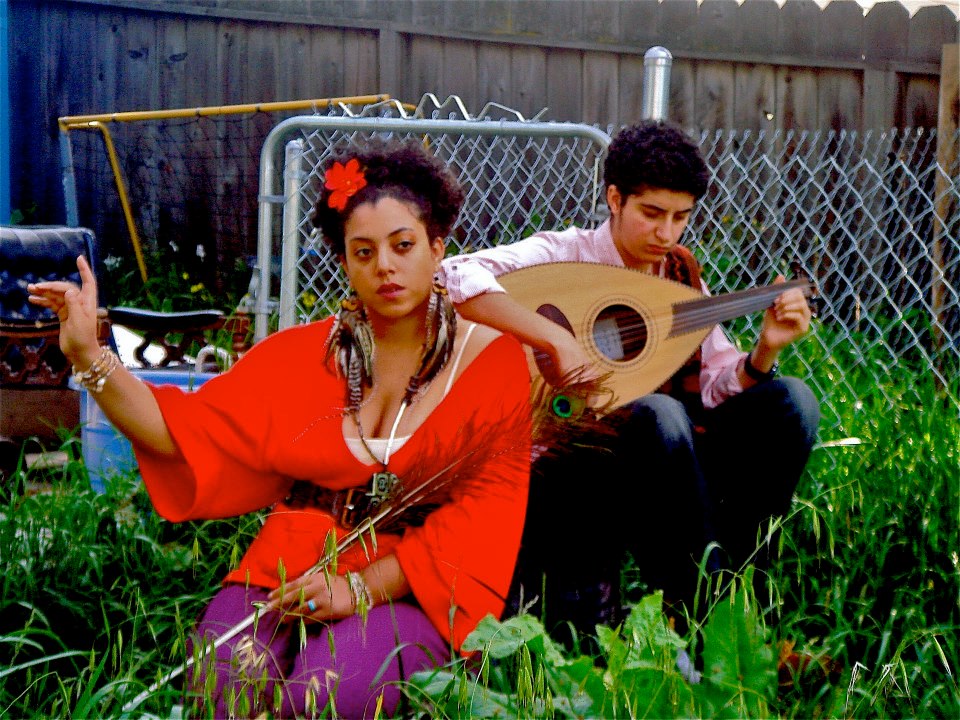
Nia Witherspoon is a multidisciplinary artist-scholar producing work at the intersections of indigeneity, queerness, and African diaspora epistemologies. Working primarily in the mediums of vocal and sound composition, playwriting, and creative scholarship, Dr. Witherspoon’s work has been recognized and supported by the Mellon Foundation, Theatre Bay Area, and the National Queer Arts Festival. Her original play, The Messiah Complex, is a multi-temporal meditation on the loss of parents in black and queer diasporas. Messiah was performed at New York’s prestigious Downtown Urban Theatre Festival (HERE Art Center) where it received the Audience Award and placed second for Best Play. Witherspoon’s work as a vocalist, both independently and with acclaimed ceremonial-music duo SoliRose, has spanned stages, ceremonial spaces, and activist organizations from the San Francisco Bay Area to Chicago, Los Angeles, Toronto, and Beirut, and her creative nonfiction is most recently featured in Yellow Medicine Review: A Journal of Indigenous Literature, Art, and Thought. Witherspoon has forthcoming publications in the Journal of Popular Culture and Women and Performance, and she is currently at work on a book project, “The Nation in the Dark: Reparations of Ceremony in Diaspora,” which asserts that nationalism, far from being dead, is essential to radical women of color re-envisioning indigenous religions. She received a B.A. from Smith College and a PhD from Stanford University.
They are dedicated to maintaining photographic, graphic, and video documentation of lesbian and feminist social movements and women in Mexico and Latin America.
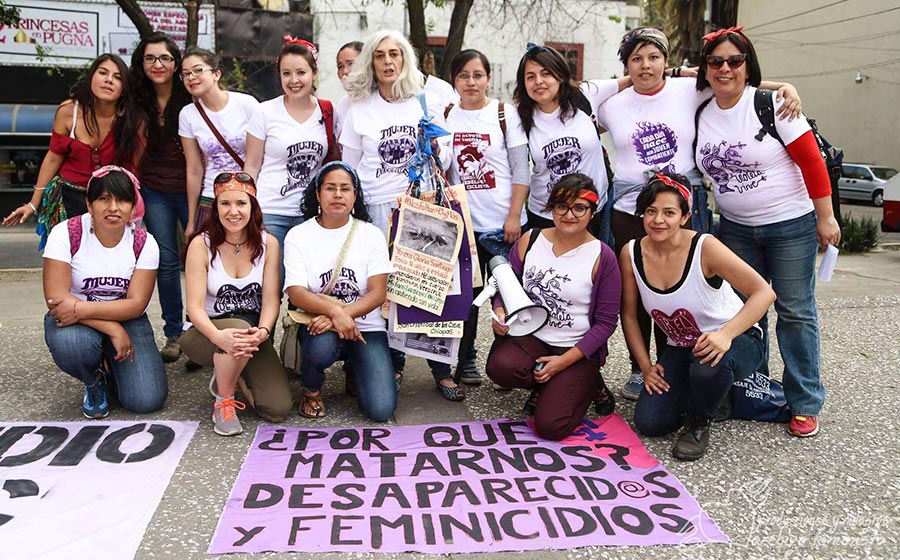
Producciones y Milagros Agrupación Feminista A.C. is a collective of lesbian feminists who fight against a patriarchal, capitalist, racist and sexist systems. The heart of their work is based on the documentation and creation of images that build and deconstruct feminist memory. They are dedicated to maintaining photographic, graphic, and video documentation of lesbian and feminist social movements and women in Mexico and Latin America (forums, actions, workshops, academic seminars, initiatives, marches, etc.). With the use of video, photography, graphic design, facilities and performance representation, they create their own materials and offer professional support to other groups.
*** En Español***
Producciones y Milagros Agrupación Feminista A.C. es un colectivo de feministas lesbianas que luchan contra un sistema patriarcal, capitalista, racista y sexista. El corazón de su trabajo tiene base en la documentación y creación de imágenes que construyen y deconstruyen la memoria feminista. Se dedica a mantener una documentación fotográfica, gráfica y de video de los movimientos sociales lésbicos feministas y de las mujeres en México y América Latina (foros, acciones, talleres, seminarios académicos, iniciativas, marchas, etc.). Con el uso del video, la fotografía, el diseño gráfico, las instalaciones y la representación del performance, crea sus propios materiales y ofrece apoyo profesional a otros grupos.
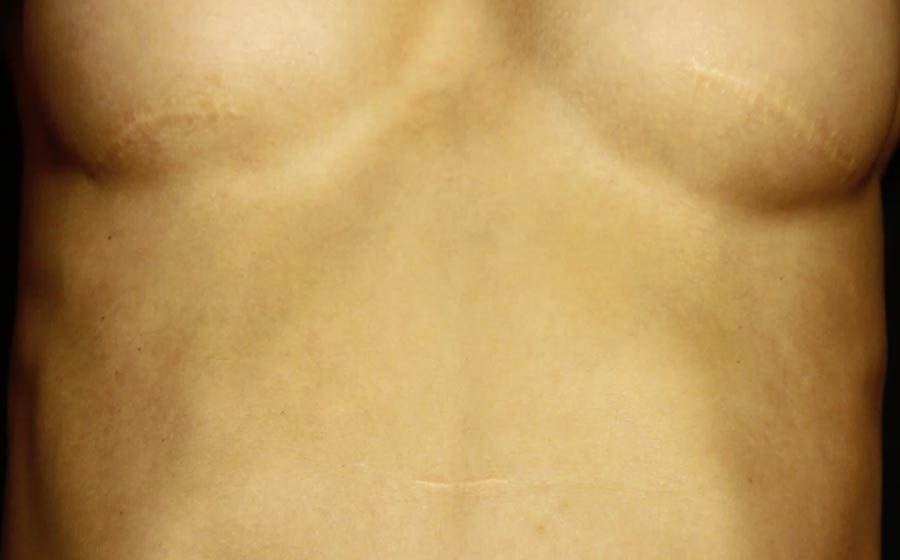
This Body, Too is a feature-length documentary written, directed by and starring Arisleyda Dilone, a young intersex woman living in the U.S. The film aims to capture Aris’s experience growing up intersex in a Dominican-American family. Aris focuses on the influences of outside forces (her partner, her friends, the medical field and, most importantly, her family) as she seeks to understand her identity as an intersex-woman and a Dominican-American. Her journey takes her back to the Dominican Republic, where there is a long history of medical research of intersex bodies. This Body, Too will tackle issues of sex identity, gender identity, surgical interventions and mainstream perceptions of feminine identity.
Funding enabled her to shoot an interview with her former doctor that operated on her body as a teen (this interview will form part of the feature film This Body, Too) and complete a short film, Mami y Yo y mi Gallito (16mins, 2015), which revolves around her first conversation with her mother about her body.











